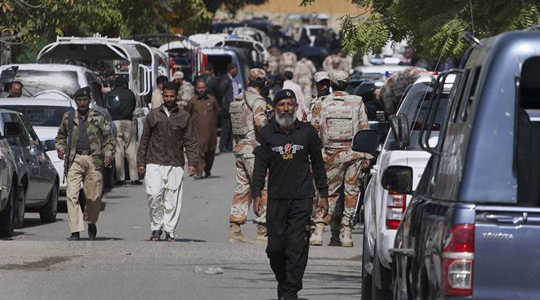Karachi, Feb 6: An Afghan security guard today shot dead a diplomat with a sub-machine gun following an altercation between the two inside the Afghan Consulate in this Pakistani port city.

Private security guard Hayatullah Khan opened fire on the third secretary, Zaki Adu, in the lobby of the Consulate in the high-security Clifton area after a personal disagreement between the two, according to the Deputy Inspector General (DIG) South Azad Khan.
"There is no terrorism element in this sad incident," DIG Khan said. "This is not a premeditated act neither a terrorist act. The guard opened fire on the spur of the moment after he lost his temper following an argument with the deceased over timings," the police official said.
"We have checked the CCTV cameras and recorded eyewitness statements," he said. The Afghan Consulate is located in the heavily secured and posh area of Clifton and the provincial government has deputed security outside the building.
There are a number of other foreign consulates in the area and also the Bhutto family's residence is situated in the locality.
Khan said Hayatullah has been taken into custody and investigations have begun.
The guard was an Afghan national employed by the Consulate. Police cleared the Consulate building for resumption of work after a thorough search.
Security of the area has been increased after the incident, a Sindh government official said. Afghan ambassador to Pakistan Omar Zakhilwal was quoted by The Express Tribune as saying that it was not an act of terrorism. "It seems to be a personal dispute related criminal act," Zakhilwal said.
The Afghan envoy said the firing inside the Afghan Consulate in Karachi at around 12:30 PM was carried out by an Afghan guard inside the compound resulting in the fatality of one of the diplomats.





Comments
Add new comment